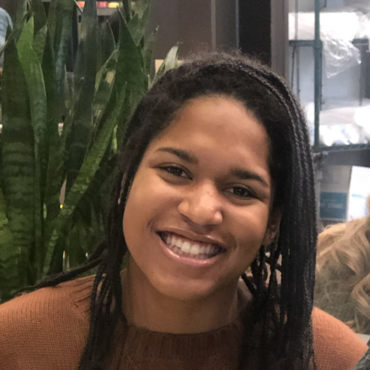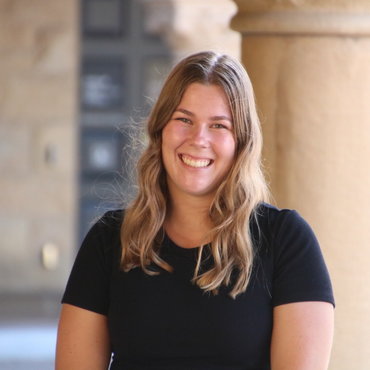
Ella Norman, ’24
Working Toward Environmental Justice in the Solar Industry
In high school, I began organizing climate strikes, calling on my representatives to pass legislation that would accelerate the transition to renewable energy. I believed that all progress towards decarbonization would also mean progress towards environmental justice.
However, during my first year at Stanford, I learned about an alarming side to renewable energy production. Supply chains for lithium-ion batteries found in electric vehicles often involve labor exploitation and environmental degradation. Many solar panels are also manufactured using forced labor.
I felt conflicted after my freshman year; a shift towards renewable energy was needed to move away from fossil fuels, but accelerating the production of renewable energy under the current system seemed like it would only exacerbate the human rights violations and environmental harms that were happening.
As I was grappling with the nuances of this issue and figuring out where I fit in, I was introduced to Sheila Davis, the executive director of the Solar Scorecard project. Sheila started the Solar Scorecard to push solar manufacturers to be leaders in championing human rights, environmental justice, circularity, and transparency. The Solar Scorecard scores solar manufacturers based on their progress towards achieving best practices in these areas.
Joining the Solar Scorecard research team allowed me to make an impact in pushing the industry to better embody the principles of environmental justice. Over the past two years, I’ve had the opportunity to work on this project, with a focus on developing scorecard criteria for worker health and safety, human rights, supply chain due diligence, and stakeholder engagement.
Although there are many reasons why I love working on the Solar Scorecard project, one of my favorite parts has been the people that I’ve gotten to meet and work with. I’ve collaborated with undergrads and grad students studying subjects like earth systems, engineering, and law. I have learned so much from the other students on the team and from Sheila, who has a wealth of knowledge from a lifetime of environmental justice advocacy.
Because most of our work is done virtually, I was excited to plan two in-person Solar Scorecard workshops as part of my role as the Haas Center’s issue area coordinator for environmental sustainability. Through this role, I support students, student groups, and partner organizations in advancing collaborations that promote sustainability and environmental justice.
Throughout February and May, dozens of Stanford students gathered in the DK room for workshops on sustainable development and due diligence in the solar industry. During these workshops, students were able to participate in the scoring process, analyzing company websites and sustainability reports. These workshops built capacity for the Solar Scorecard project and brought more awareness of energy justice to campus.
Working on the Solar Scorecard project has made tangible some of the theoretical issues I was grappling with early on in my Stanford career. It has deepened my understanding of topics that come up in my classes, such as sustainable development, Justice40, and just transitions. I am grateful to be part of a project that will guide solar investments and inform buying decisions, pushing the industry forward.


